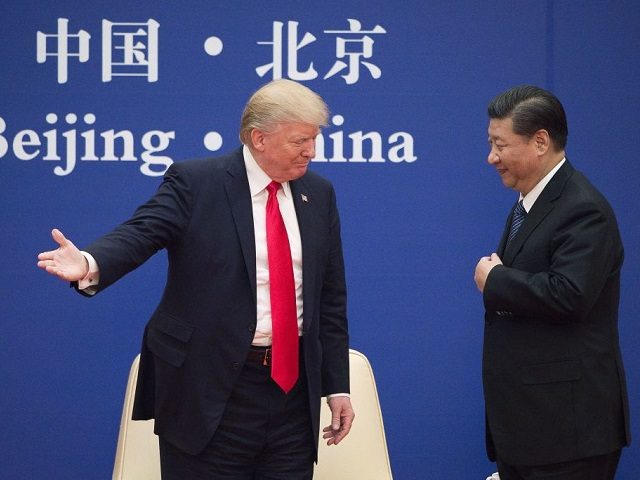China announced Tuesday it will slash tariffs on imported cars, a move that could benefit the global auto industry.
China’s Finance Ministry said auto tariffs will be reduced from 25% to “around 13.8%,” and levies on car parts will come down from 10% to 6%.
“Volkswagen AG (VLKAY) , the world’s second largest carmaker, rose 0.7% in Frankfurt trading following the statement as rivals BMW AG (BMWYY) (+1.6%) and Daimler AG (DMLRY) (+1.18%) outpaced the DAX performance index, which was marked 0.12% lower by mid-morning. The Stoxx 600 Automobiles and Parts Index, the sector benchmark, gained 0.53% in the opening 90 minutes of European trading,” reports The Street.
China says the change will take effect July 1st.
In April, President Donald Trump blasted China over its seemingly unfair import duties on cars.
“When a car is sent to the United States from China, there is a Tariff to be paid of 2 1/2%. When a car is sent to China from the United States, there is a Tariff to be paid of 25%. Does that sound like free or fair trade. No, it sounds like STUPID TRADE – going on for years!”
Trump tweeted in March that the Chinese had been tasked with developing a plan to reduce the billion-dollar trade deficit between the two countries, prompting a reply from Telsa CEO Elon Musk.
“Do you think the US & China should have equal & fair rules for cars? Meaning, same import duties, ownership constraints & other factors,” Musk asked the President.
Lamenting China’s costly tariffs, Musk noted that a vehicle made in the United States and imported into China pays a 25% tax. However, China only pays a 2.5 percent import tax when shipping their cars to the U.S.
In a joint statement released Saturday, the United States and China announced that a “consensus” was reached to “substantially reduce” the $370 billion trade imbalance between the two economic superpowers.
“There was a consensus on taking effective measures to substantially reduce the United States trade deficit in goods with China,” the joint statement said, adding, “To meet the growing consumption needs of the Chinese people and the need for high-quality economic development, China will significantly increase purchases of United States goods and services.”

COMMENTS
Please let us know if you're having issues with commenting.